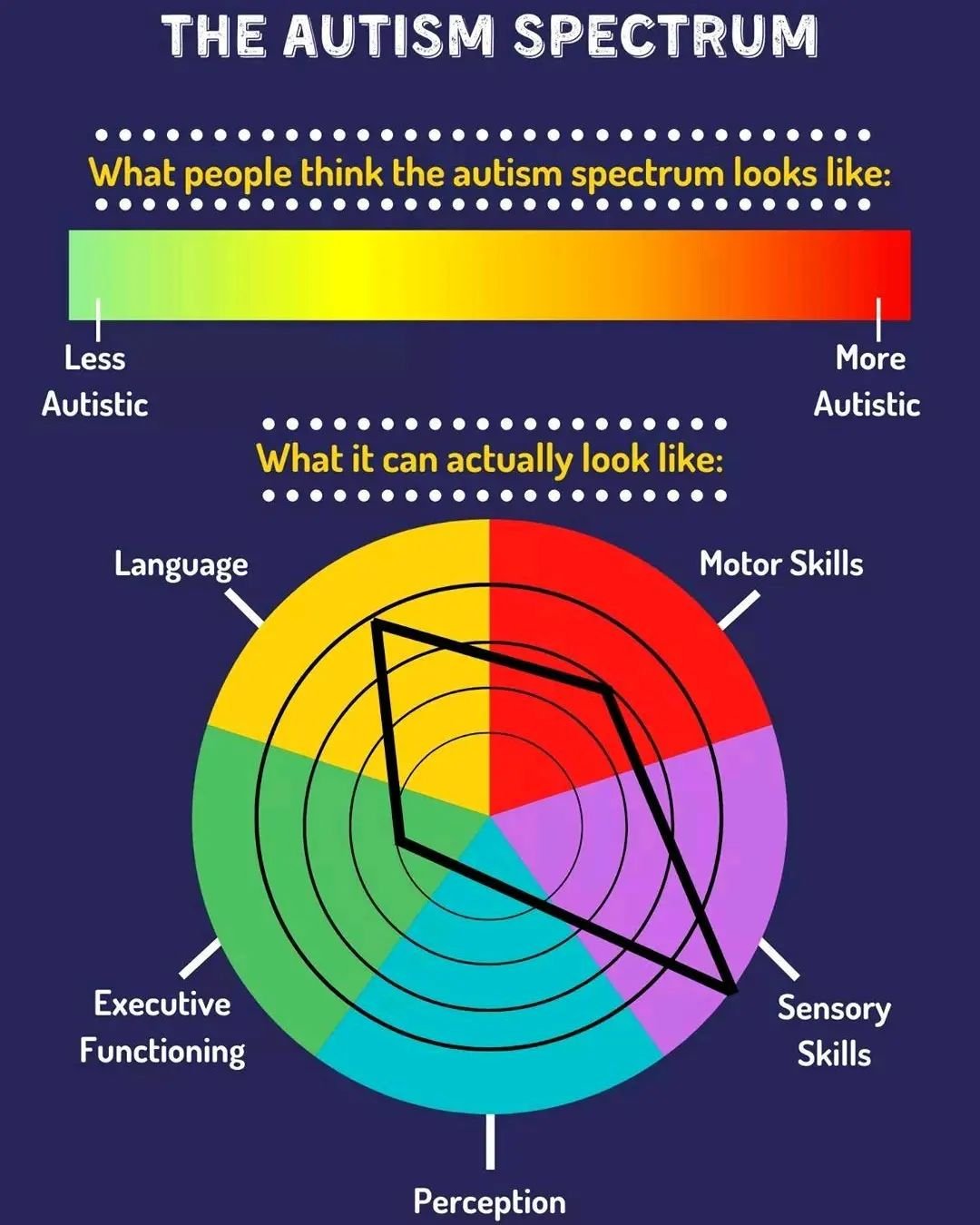Unlocking Potential: A Guide for Parents of Twice-Exceptional (2e) Children
Raising a child who is both gifted and faces learning challenges can feel like navigating a maze: moments of awe and pride are often mixed with frustration and uncertainty. If your child is twice-exceptional (commonly referred to as 2e), you’re not alone in this journey. These children are remarkable—they possess extraordinary talents while simultaneously grappling with unique challenges. As a parent, understanding their needs can be transformative, helping your child thrive both in and out of school.
Source: Unknown
What Does It Mean to Be Twice-Exceptional?
When we say a child is twice-exceptional, we mean they are gifted in one or more areas—such as intellectual ability, creativity, or specific academic skills—while also living with a learning or developmental difference like ADHD, autism spectrum disorder (ASD), dyslexia, or anxiety. Your child might amaze you with their deep questions or creative problem-solving but then struggle with organization, social interactions, or managing frustration.
This duality can be confusing. One day, your child might seem lightyears ahead of their peers, and the next, they might need help with something seemingly simple, like following instructions or completing homework. Often, these children are misunderstood in schools. Their strengths may mask their struggles, or their challenges may overshadow their gifts, leading to frustration for both the child and their family.
The Gifts of Twice-Exceptional Children
As a parent, you’ve likely seen glimpses of your child’s incredible talents. Twice-exceptional children often have qualities that make them stand out, even in the most unexpected ways:
Deep Curiosity and Passion: Does your child ask complex questions that leave you speechless? Many 2e kids show an intense love for learning and dive deeply into topics they’re passionate about.
Creative Thinking: You might notice your child coming up with ideas that are so unique they surprise everyone around them. Their creativity might shine in art, music, storytelling, or even building complex LEGO structures.
Resilience: Living with challenges often makes these kids incredibly determined. They may struggle but show a persistence that inspires you.
Empathy and Emotional Depth: Many twice-exceptional children are highly sensitive, with a strong sense of justice or a deep compassion for others.
Hyperfocus: When they’re interested in something, they can spend hours absorbed in it, mastering skills or knowledge far beyond their years.
These gifts are treasures, and when nurtured, they can help your child develop confidence in their abilities, despite the challenges they face.
The Challenges Twice-Exceptional Children Face
Parenting a 2e child isn’t always easy. Alongside their gifts, twice-exceptional children face unique struggles that can affect their daily lives:
Uneven Development: Your child might excel in one area but lag behind in another. For instance, they might read at a college level but struggle with writing legibly or completing basic tasks.
Perfectionism and Frustration: Because they’re intelligent, your child might set impossibly high standards for themselves. When they fall short, it can lead to meltdowns, self-doubt, or even giving up entirely.
Social Difficulties: They might feel out of step with their peers—too advanced for some, yet too immature for others. This can lead to feelings of loneliness or being misunderstood.
Executive Functioning Problems: If your child struggles with planning, time management, or organization, tasks like homework or following multi-step instructions can feel overwhelming.
Underachievement: Despite their potential, these kids may underperform in school because their challenges prevent them from showing what they’re truly capable of.
As parents, it’s heartbreaking to see your child feel frustrated, misunderstood, or less capable than they truly are. But with the right support, these challenges can be addressed, allowing their strengths to shine.
How You Can Support Your Twice-Exceptional Child
Your role as a parent is essential in helping your child navigate their unique journey. Here are some ways you can support them at home, in school, and in life:
1. Embrace Their Strengths
Start by focusing on what your child does well. Celebrate their gifts and give them opportunities to explore their passions. Whether it’s enrolling them in a robotics club, encouraging their love for art, or simply letting them dive into a favorite topic, nurturing their strengths builds confidence and motivation.
2. Be Patient with Their Challenges
It’s important to remember that their struggles are just as real as their talents. If your child has trouble staying organized or following through on tasks, it’s not because they’re lazy or careless—it’s because they need extra support. Consider tools like visual schedules, timers, or checklists to help them stay on track.
3. Advocate for Their Needs in School
Work closely with your child’s teachers to ensure both their strengths and challenges are recognized. If needed, request an Individualized Education Program (IEP) or 504 Plan to provide accommodations, such as extra time on tests, reduced homework loads, or access to advanced coursework. A tailored approach can make all the difference.
4. Teach Them How to Self-Advocate
As they grow, help your child understand their unique strengths and challenges. Teach them to speak up for themselves, whether it’s asking for extra help, explaining their needs to a teacher, or celebrating their successes.
5. Support Their Emotional Well-Being
Twice-exceptional children often feel deeply, and they need emotional tools to handle frustration, anxiety, and self-doubt. Encourage open conversations about feelings, and consider working with a counselor or therapist if they need additional support.
6. Build a Team of Experts
Sometimes, the best thing you can do is call in help. Educational psychologists, occupational therapists, and other specialists can assess your child’s needs and provide strategies for success.
7. Connect with Other Families
Parenting a 2e child can sometimes feel isolating, but you’re not alone. Joining support groups or connecting with other families of 2e children can give you valuable insights and a sense of community.
The Big Picture
Parenting a twice-exceptional child is a journey filled with highs and lows. It’s easy to focus on the challenges, but never forget the incredible gifts your child brings to the world. Research shows that with the right support, 2e children can thrive. Studies like those by Foley-Nicpon et al. (2020) emphasize the importance of focusing on strengths while addressing challenges, helping 2e children reach their full potential.
Your belief in your child’s potential, combined with patience, advocacy, and love, can make all the difference. When your child feels seen, understood, and supported, they can overcome obstacles, embrace their gifts, and achieve things you might never have imagined.
So, take a deep breath, lean into your child’s unique journey, and know that you’re giving them the tools to grow into their best, most exceptional selves. It’s not an easy road, but it’s one filled with incredible possibilities—and your child is worth every step.





